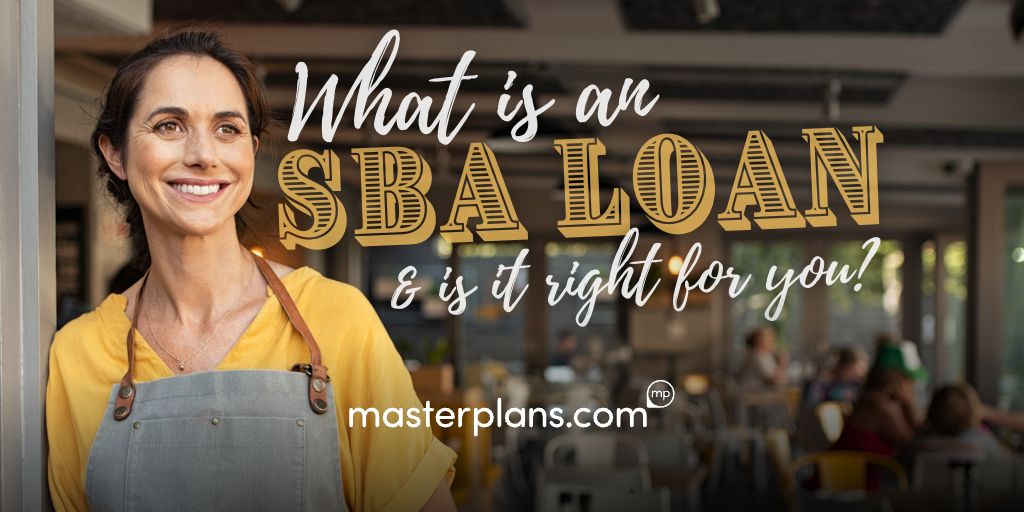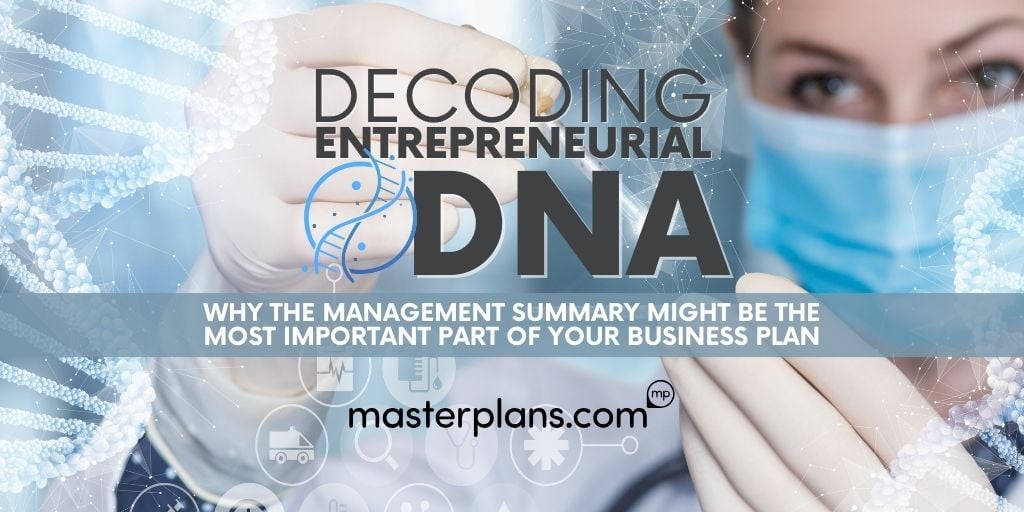How to Write a Management Summary for Your Business Plan
Entrepreneurs are often celebrated for their uncanny ability to understand others – their customers, the market, and the ever-evolving global...

A business loan, particularly one backed by the Small Business Administration (SBA), is an excellent way for entrepreneurs to launch a new venture. SBA loans have (relatively) low interest rates, long terms for paying them back, and less money and collateral needed up front.
There are a few things you should consider, however, because SBA loans are not appropriate for every founder or business.
There is one common misperception regarding SBA loans. The SBA does not loan money itself. An SBA loan is provided by a bank, and it is repaid to the bank in the same manner as any other bank loan. The primary distinction between a standard commercial loan and an SBA loan is that the SBA “guarantees” your loan to the lender as a means of encouraging business growth.
To understand why this program exists, it’s important to remember that banks hate risk, and startup businesses are inherently risky. The statistics about small business success that you hear are usually exaggerated — according to the most recent data, one out of every five businesses fails within the first year. But that means four out of every five businesses will last for at least a year.
So, while the numbers aren’t as bad as the skeptics would have you believe, a 20% failure rate is still far too risky for banks. Especially if you, as the borrower, want a low down payment and low interest rates. This is where the SBA comes in. Through its loan programs, the SBA effectively tells banks that if your business fails, they will receive 85% of the lent money back from the government.
But that doesn’t mean you’re off the hook if you don’t pay (the lender will still come after you). Nor does it mean that banks are just throwing money around. The SBA keeps an eye on the portfolios of lenders, and lenders whose portfolios don’t do well are kicked out of the program. So while the SBA offers protection to the bank and thereby makes it easier for founders to get loans, it still takes a lot of effort to qualify.
There are several different types of SBA loans, but the most common are the 7(a) loan and the 504 loan, and for our purposes today, we will focus primarily on these two programs.
With a maximum loan amount of $5 million, the 7(a) loan program is the most common type of SBA loan. It has the broadest range of uses, including:
In FY2022, which is the most recent year for which data is available, the SBA approved nearly 52,000 7(a) loans worth a total of $36.5 billion, or an average loan amount of nearly $705,000. Typically, these loans are repaid in 7-10 years. It is important to note that 7(a) loans almost always have variable interest rates, which means they fluctuate in accordance with the Federal Reserve’s Treasury Note interest rate. Check out the SBA’s 7(a) loan terms and conditions for more information on specifics.
The other common SBA loan program is the 504 loan, which is a little more rigid than the 7(a), but comes with longer payment terms and lower interest rates. The 504 loan can be used for asset purchases such as:
Last fiscal year, the SBA approved just under 10,000 504 loans for a total of $8.2 billion, or about $850,000 on average. Repayment on 504 loans can be as long as 25 years. 504 loans, unlike 7(a) loans, have fixed interest rates based on the market rate for the Treasury Note at the time of borrowing.
To get an SBA loan, you (and your business) must meet the following requirements:
Depending on the lender, there may be some wiggle room in these requirements, but these are the basic ones your business needs to meet to get an SBA-backed loan. Check out the terms and conditions of the SBA loan program if you want to learn more.
Even if you meet all of the eligibility requirements, certain business types aren’t fundable via SBA loans.
Ineligible businesses include:
None of the above ineligible businesses should come as much of a surprise, but there’s one more thing that needs to be considered when figuring out if your business can get an SBA loan. A business with an SBA loan must maintain a Debt Services Coverage Ratio (DSCR) of at least 1.15 (and most lenders want higher than that).
DSCR is your Earnings Before Interest, Taxes, Depreciation, & Amortization (EBITDA) divided by your loan payments. For example, if you have an EBITDA of $100,000 and your total payments on the loan in the same year are $50,000, then your DSCR is 2.0.
This means it will be hard to get an SBA loan if your business will take a long time to start making money, like a tech business or a new invention.
To provide some context, we thought it might be useful to look at the most common industries funded by SBA loans. This data is only intended to provide information; if your industry isn’t on this list, it doesn’t mean you can’t get an SBA loan. It also doesn’t mean that you will get an SBA loan if your business is on this list.
As these lists show, SBA loans are mostly received by the businesses you see driving around town every day.
They are the businesses we rely upon for the goods and services that make our communities thrive.
If that’s the kind of business you’re looking to start, an SBA loan may be the right choice for you.
That is not to say that if you have big dreams, you should disregard the SBA loan program. Every large venture starts as a small business first. However, it is clear that companies in the media and technology sectors — the Facebooks, Amazons, Apples, Netflixes, and Googles of the world — are not the types of businesses that typically qualify for SBA loans. When it comes to funding, those kinds of businesses are better served by angel investors and venture capitalists.
Are you still unsure if you or your business would qualify for an SBA loan? Masterplans has been working with SBA borrowers for two decades, and we’d be happy to discuss how you can best position your new business for an SBA loan.

Entrepreneurs are often celebrated for their uncanny ability to understand others – their customers, the market, and the ever-evolving global...

Despite growth in sectors like artificial intelligence, venture capital funding has seen better days. After peaking at $347.5 billion in 2021, there...

Most people think of a professional business plan company primarily as a "business plan writer." However, here at Masterplans, we choose to approach...